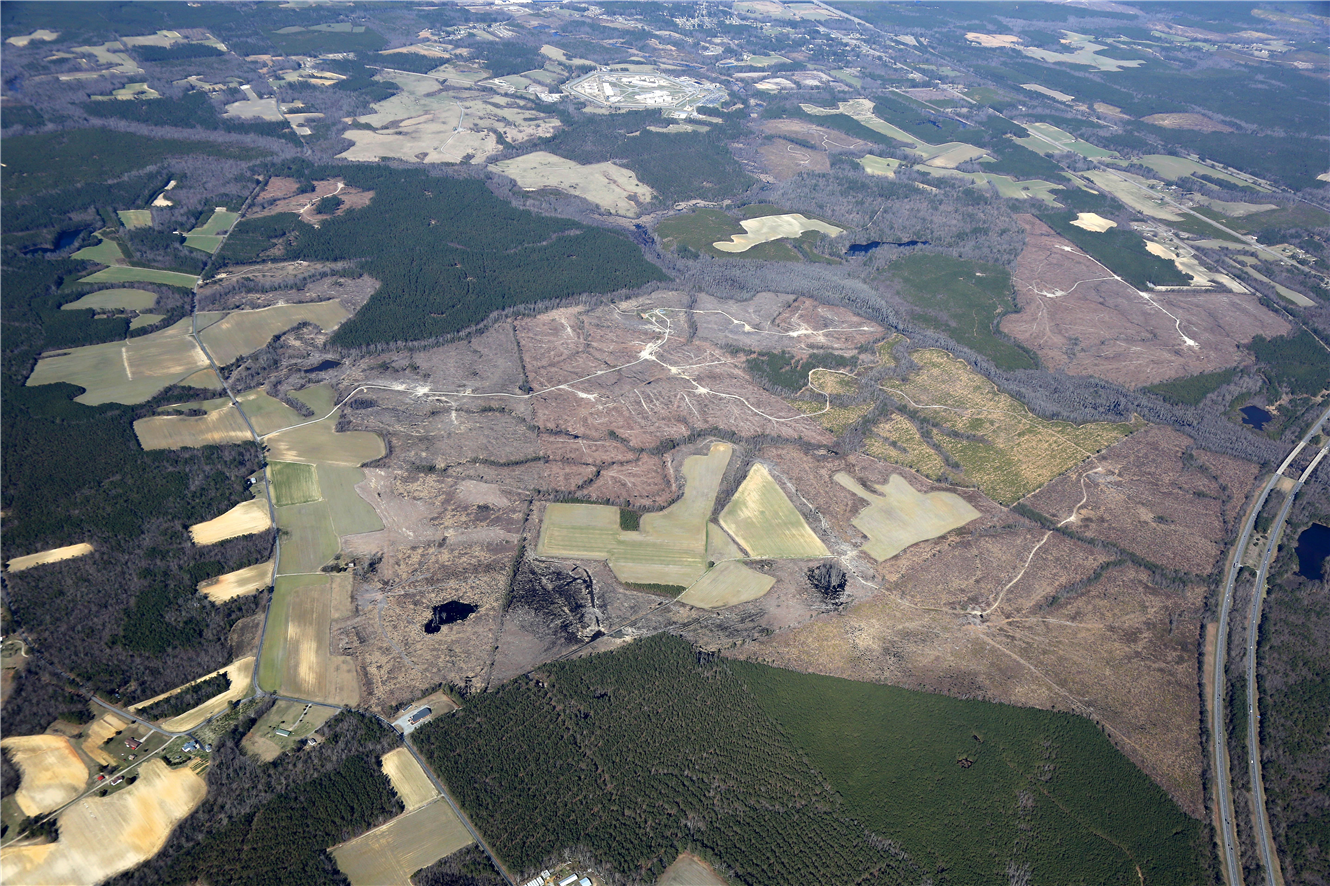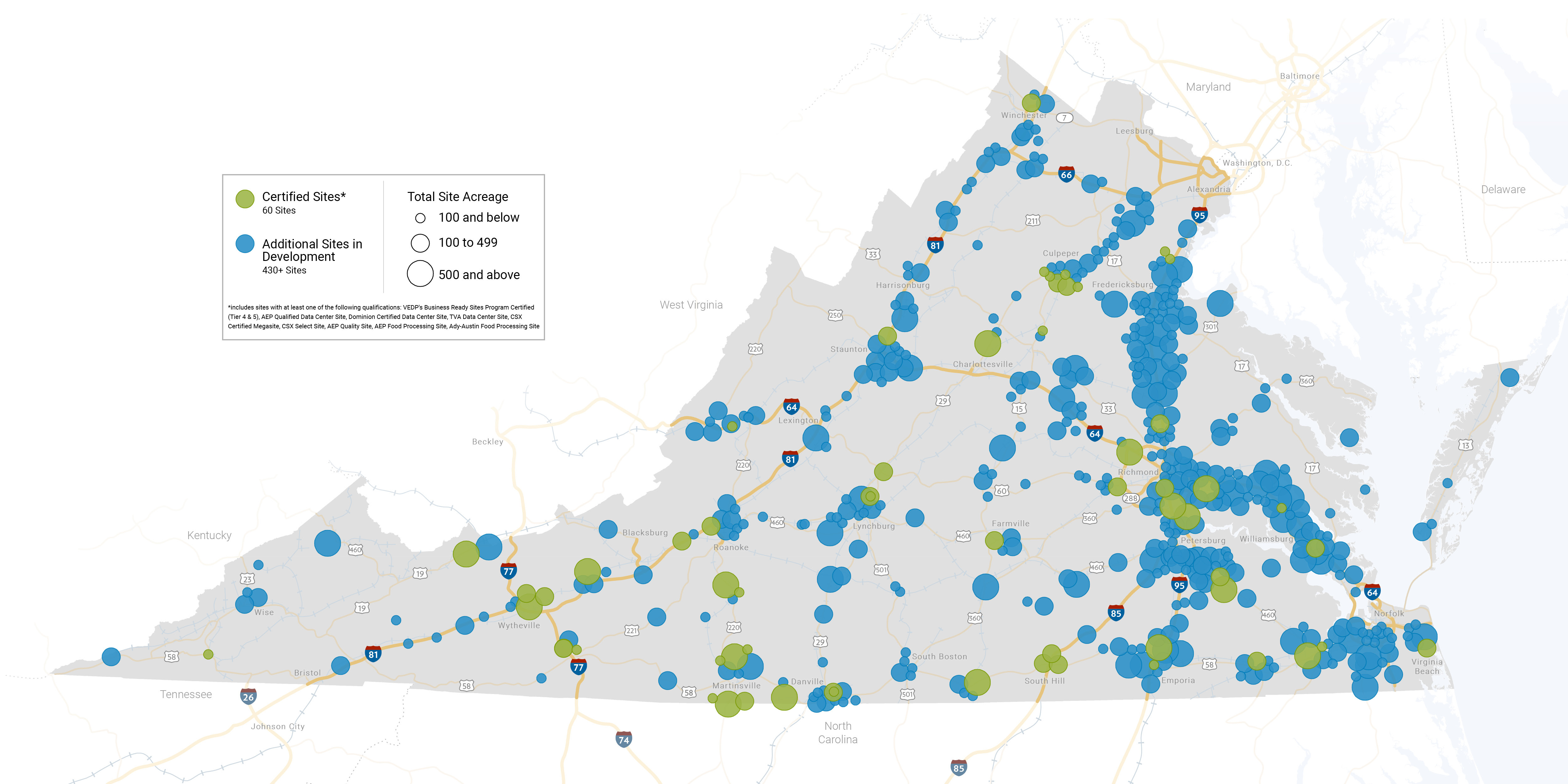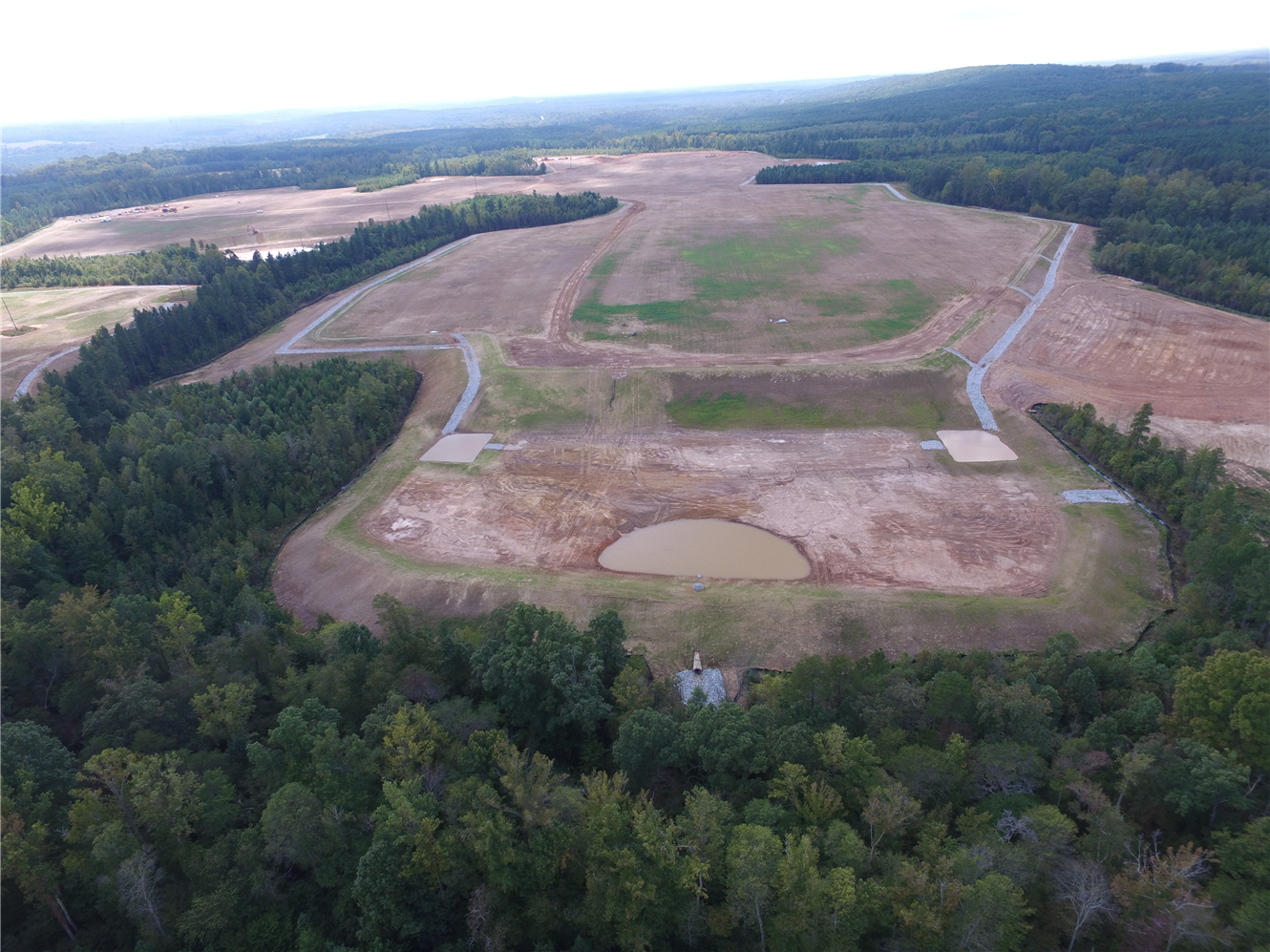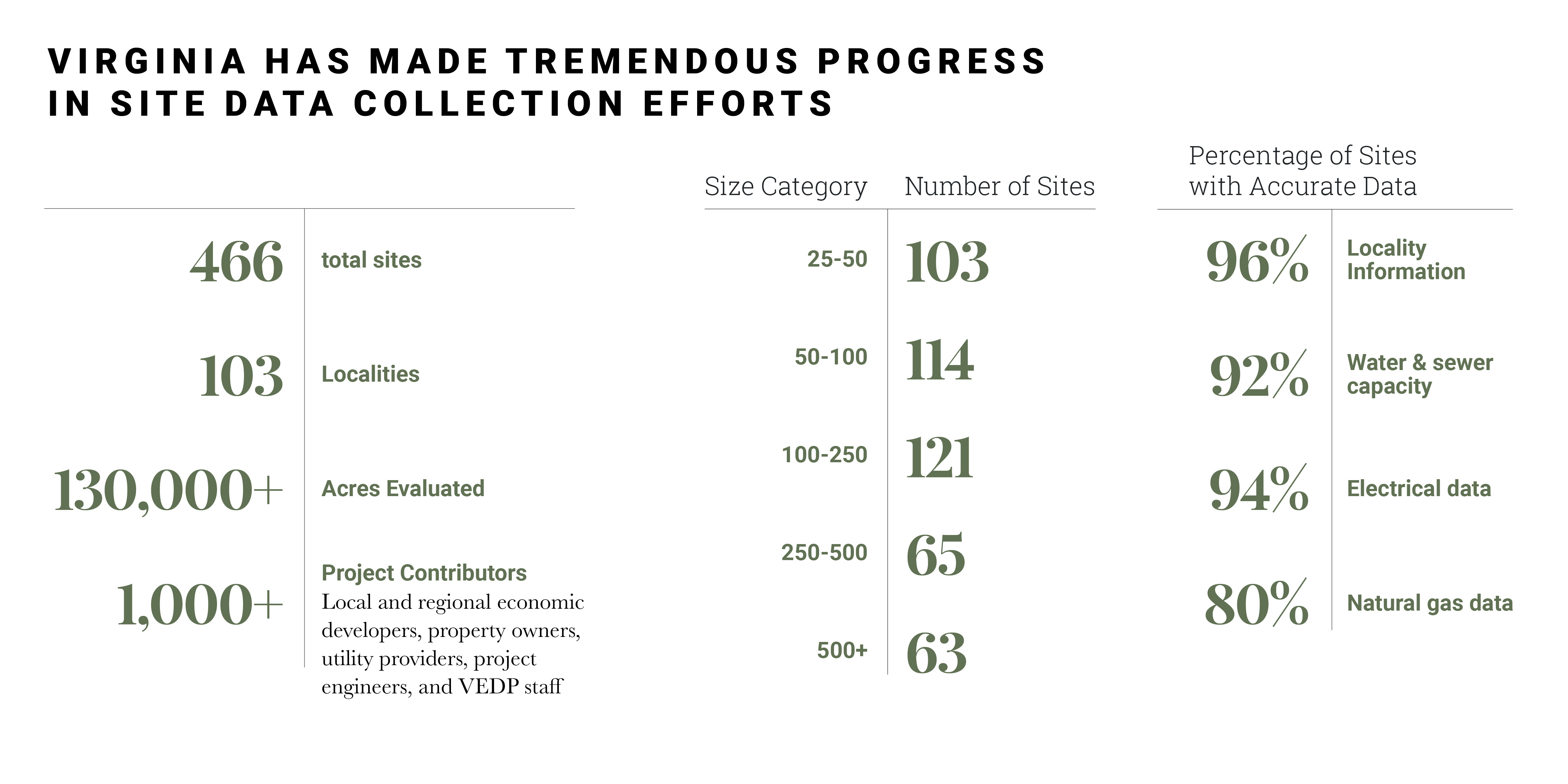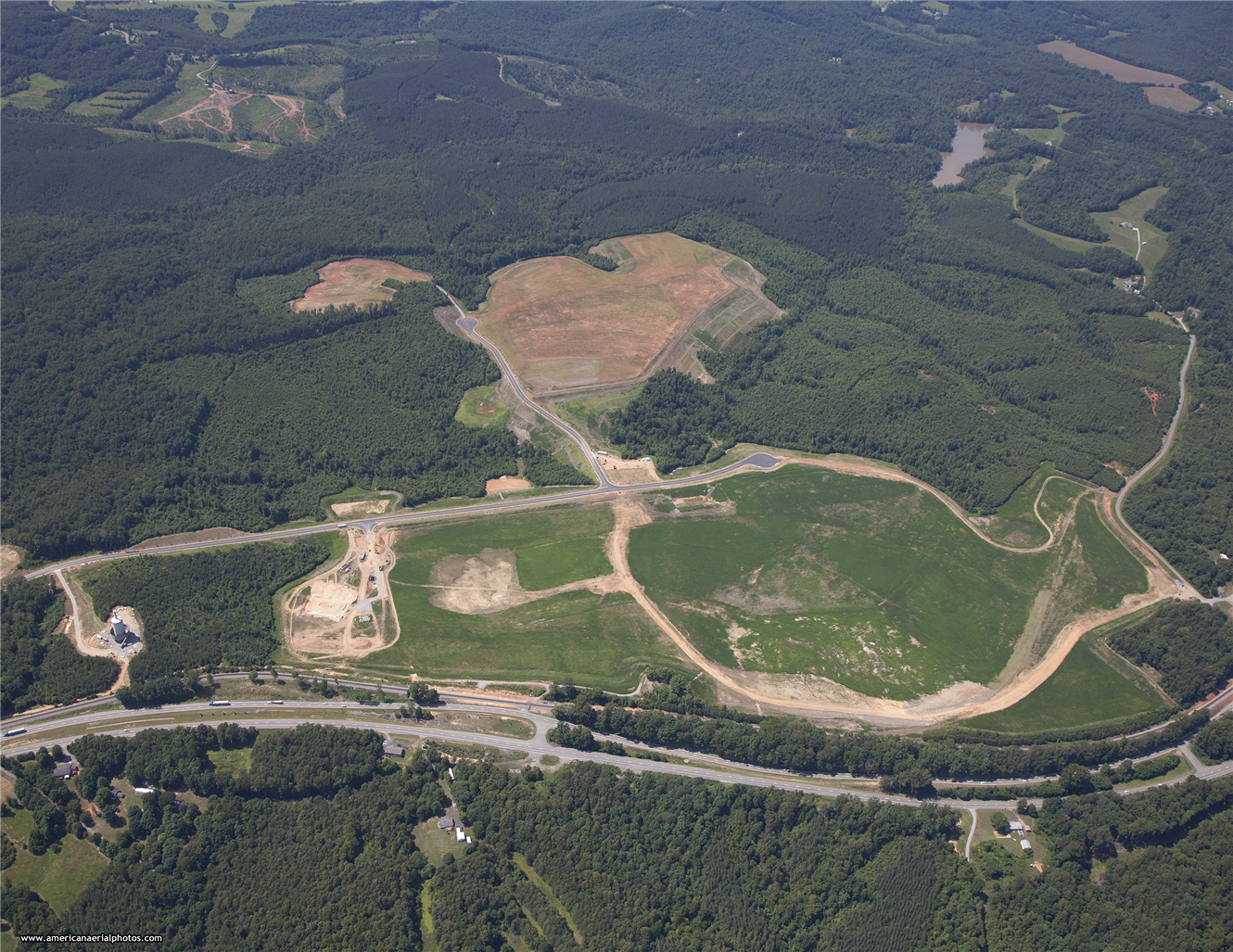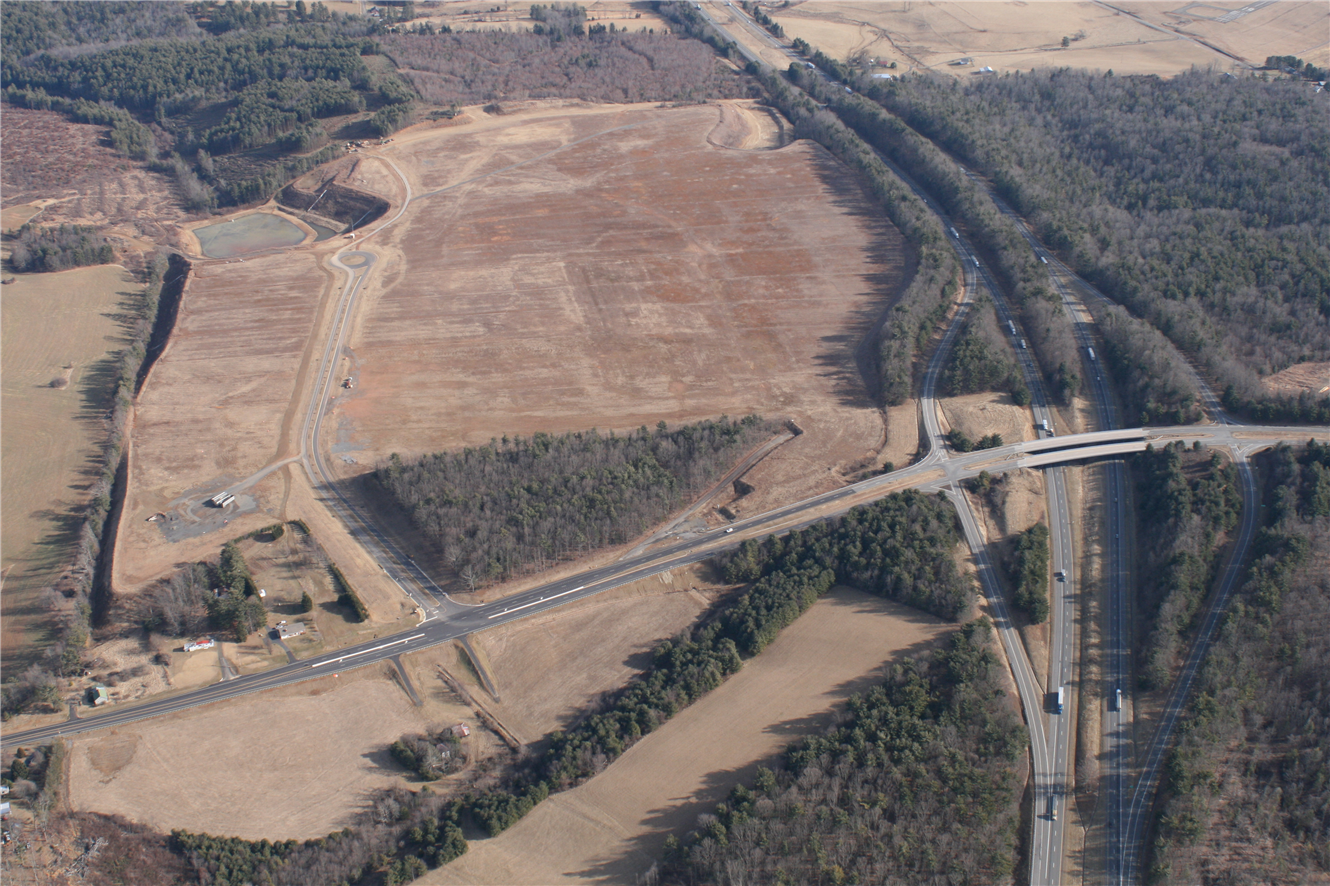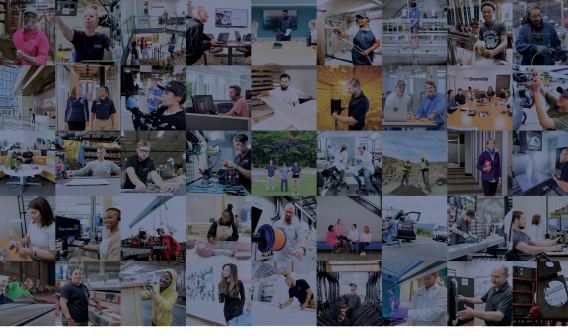The Business of Creating Business-Ready Sites
Virginia looks to increase the availability of development-ready sites with a two-pronged approach of characterization and development, working to bring business-ready sites online with greater speed and transparency than ever before.
The Future of Site Selection is Both a Sprint and a Marathon
Virginia has embraced this dichotomy, simultaneously dialing up the speed at which it brings sites online and creating a turnkey process for certifying sites as business ready that’s built for the long haul.
The genesis for this undertaking occurred when Virginia’s economic developers at the state and local level saw that, here and there, would-be project wins were instead unexpected misses. They were losing out to sites in other states that were bigger, available faster, and already classified as business ready. For the Commonwealth’s leaders, being out of sites meant being out of mind for companies and site selection consultants. And that was unacceptable.
In turn, Virginia rallied a cross-functional team of state agencies, utilities, and a host of other stakeholders to launch the Virginia Business Ready Sites Program (VBRSP), an in-progress, all-hands-on-deck effort, including site characterization and site development phases.
Now, with the program well underway, and with additional funding in place, the Commonwealth has an inside track to get business-ready sites online and in front of site selection decision-makers.
For most of the projects we're working on today, shovel-ready sites are truly becoming a screening factor. We're requesting information from states and localities with shovel-ready sites only.
What Is Business Ready?
“Our clients are really looking at sites and asking, ‘Is it ready?’” said Brad Migdal, senior managing director at Cushman & Wakefield.
While the caveat of “it depends on the project” always applies, Biggins Lacy Shapiro & Co.’s Michelle Comerford says that in order to make it on her radar, a site needs to be prepared.
“For most of the projects we’re working on today, shovel-ready sites are truly becoming a screening factor,” said Comerford, a project director and industrial and supply chain practice leader with 16 years of site consulting experience. “We’re requesting information from states and localities with shovel-ready sites only.”
Today, companies want to be up and running in 18–24 months from the word “go.” And that’s in a tight real estate environment when companies are willing to look farther afoot from population centers, Migdal said.
“I’ve been in economic development for over 20 years, and I can tell you that the timeline from when a company starts talking to a state or locality, to when they want to make a decision has shrunk dramatically,” echoed Michael Burnette, director of economic development for Franklin County.
Part of being a business-ready site means that consultants such as Comerford and Migdal can glean any of more than 100 data fields at a glance to see if a site merits further consideration.
“The availability of information is key to our business,” Migdal explained. “The bigger challenge we run into is determining how good the information is.”
Comerford points out that not all data points can be defined in a cut-and-dried fashion. “There’s a lot of gray area,” she said.
This can apply to utilities, where — for example — she would much rather pore over an aerial or even interactive map to see what exactly lies between an electric line and a site than simply read in a static report that they’re one mile apart.
This is the output of VBRSP: not just ramping up Virginia’s availability of business-ready sites, but also evolving Virginia’s online site database to the peak of credibility and accessibility. Then, decision-makers and influencers can access more prepared sites and scan key features virtually, performing initial vetting remotely before deciding to visit Virginia for a boots-on-the-ground tour.
Digging in to VBRSP
Virginia’s General Assembly established the VBRSP in 2015. It was a collaborative effort, boasting representation from state, regional, and local stakeholders, including VEDP, the Virginia Department of Environmental Quality (DEQ), railroads, utilities, civil engineers, and other government, business, and industry organizations.
The objective is twofold: enhancing the Commonwealth’s infrastructure, while promoting Virginia’s competitive business environment.
The program includes two primary workflows. Site characterization is designed to assess and designate a site’s current level of development, while site development is intended to further develop a pool of potential sites across the Commonwealth that are well prepared and positioned for development.
When a site reaches Tier 4 or Tier 5 status (tier levels are an indication of site preparedness), it’s considered “business ready.” This designation means that a motivated company can often move in within 12 months of making a site commitment.
Virginia’s Certified and Characterized Sites
VEDP recently characterized substantially all identified development sites of 25 acres and above across Virginia, as well as assessed their strategic fit for several target industry sectors. Virginia likely now has the best site intelligence of any state in the country, and will be prepared to proceed with a more substantial site development program. The map shows all characterized and business-ready certified sites in Virginia.
The VBRSP goes to great lengths to define its “business ready” classification, even seeking the input of third-party site consultants to ensure it’s beyond reproach.
While VBRSP enables companies and consultants to make faster, more informed decisions, there’s also a big payoff for those at the other end of the under-construction database: knowledge. Economic developers are more aware than ever which characteristics the most sought-after sites possess — and how their sites measure up.
“A big thing we do at the local level is help prep these sites for companies to move in as quickly as possible,” said Burnette, whose county of 55,000-plus residents has a manufacturing focus. “The more we can get done prior to them getting interested saves companies months and months of time.”
Putting Goals Within Sight
Leveraging new funding from the General Assembly, a major bulk site characterization effort is wrapping up. This sites effort is unique among peer states in its breadth, depth, and ambition. Through the end of July 2019, Virginia, working with third-party engineering firms, has characterized more than 460 identified development sites of 25 acres or more in 103 localities.
The ultimate goal of this initial assessment work is to increase the number of project-ready sites. Assessment is the first step in determining what’s needed for each site to reach a business-ready status. Virginia currently has designated more than 60 certified sites, a number that will increase in coming years as a result of these efforts.
Once the assessments are complete, there is more work remaining to determine the costs and model funding structure to bring strategic sites to Tier 4 and 5 levels and certifying them as business ready. Funding partners for targeted investments intended to bring sites from one readiness tier to the next may include a number of entities, such as the Virginia Department of Transportation, GO Virginia, and utility companies. The objective is to drive holistic, coordinated investment rather than embracing a piecemeal financing approach.
One of these certified business-ready sites is in Burnette’s Franklin County. The Summit View Business Park, spanning 550 acres, has already netted two top-flight enterprises since achieving its critical Tier 4 business-ready certification: ValleyStar Credit Union (a multi-state administrative operation) and Stik-Pak Solutions, which together represent nearly $20 million in capital investment.
Meanwhile, in Botetourt County, which has experienced a 10% spike in job growth over the past three years, two sites have already been characterized. Director of Economic Development Kenneth McFadyen now looks at some of the states that touted leading site characterization and site development programs and sees Virginia narrowing the gap.
“We’re gaining ground,” he said. “We’re getting into a much better spot.”
Of course, as Virginia makes gains, others are also racing to optimize and showcase prepared sites.
“We’re definitely seeing a lot more states, regional groups, and utilities recognizing the need to have sites that are prepared for investment,” Comerford noted.
While she hears from some economic developers, especially those in rural communities, that they don’t always have the funds to invest in sites upfront, she advocates helping decision-makers connect the dots rather than failing to address steps needed for development.
“The more you can do to save time for a prospective company to get up and running faster, the better,” Comerford said. For example, if you don’t have permits in place but boast a fast permitting process, demonstrate it. Or if a planned effort to extend a water and sewer line hasn’t yet been undertaken, share the needed steps. “If you have a plan and the documentation, show that; do anything you can do to reduce that speed to development.”
As the team, which included more than 1,000 stakeholders and contributors assisting with the initial characterization effort, deploys and assesses data collected from these initial assessments, they’ll also be watching how site selectors compare potential destinations within the state and, ultimately, across different states, as they’ll have more data to act on.
“We may think we understand how competitive we are with other localities,” shared McFadyen. “But until we can see it quantified, and see the thorough analysis VEDP is doing, we can’t be sure.”
After all, Migdal says, available data is always good — especially when a site is good to go. But you can’t lose sight of the fact that it’s simply another piece of input to help a company solve its unique site selection math: aligning the human capital with real estate and cost.
“This information is never going to replace the need for economic developers,” Comerford added. “It’s just helping us be a little more efficient. We’ll never be able to make final decisions off of this data, but it’s an opportunity to get on our radar and show you’re qualified.”
Migdal sees the growing accessibility of site data as another input in site selection math.
“We help companies figure that big equation out,” he said. “Every company has an optimal position they can be in from a cost perspective.”
If Virginia continues doing its homework right, that math adds up to more companies selecting the Commonwealth.
